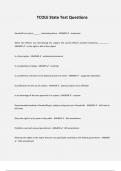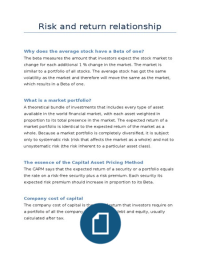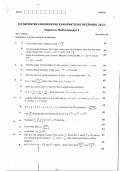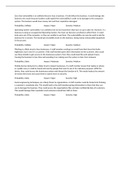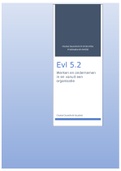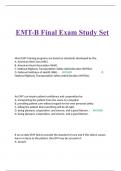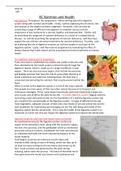EC 205: Development Economic (Macro)
Lecturers: Prof. Marta Santamaria and Prof. Omer Moav
(This assignment carries 20% of the total mark in the module. End of the year exam accounts
for 80%)
Answer all FOUR questions:
Question 1
Discuss in no more than 200 words: (1) the main reasons for granting the Nobel prize in
Economics to Abhijit Banerjee, Esther Duflo and Michael Kremer; (2) Provide a critique of the
award. 25 marks
Question 2
Discuss in no more than 200 words the Malthusian model. (1) What are the main mechanisms
and the main conclusions for economic growth? (2) How did humanity escape the Malthusian
poverty trap? 25 marks
Question 3
Hall and Jones (1999) provide a methodology to decompose the contribution of capital stock,
human capital and technology to output per capita.
Consider Table 1 in Hall and Jones (1999), p. 91.
1. Which of the factors (capital stock, human capital, technology) has driven output per
capita in West Germany?
2. Provide one possible explanation for your answer to 1 (which was the most important
factor driving output per worker) given the historical context in West Germany.
3. How does it compare to the growth experience in the United States?
Word limit: 300 words. 25 marks
Question 4
Consider now the paper: “The colonial origins of comparative development: An empirical
Investigation” by Acemoglu, Johnson and Robinson 2001, AER.
Briefly explain:
1. The question that the paper tries to answer
2. The empirical strategy
3. Write down the two estimation equations used by the authors to estimate the
effect of institutions on GDP per capita (the first-stage equation and the second-
stage equation).
Word limit: 300 words. 25 marks
Submission date: See moodle page
Lecturers: Prof. Marta Santamaria and Prof. Omer Moav
(This assignment carries 20% of the total mark in the module. End of the year exam accounts
for 80%)
Answer all FOUR questions:
Question 1
Discuss in no more than 200 words: (1) the main reasons for granting the Nobel prize in
Economics to Abhijit Banerjee, Esther Duflo and Michael Kremer; (2) Provide a critique of the
award. 25 marks
Question 2
Discuss in no more than 200 words the Malthusian model. (1) What are the main mechanisms
and the main conclusions for economic growth? (2) How did humanity escape the Malthusian
poverty trap? 25 marks
Question 3
Hall and Jones (1999) provide a methodology to decompose the contribution of capital stock,
human capital and technology to output per capita.
Consider Table 1 in Hall and Jones (1999), p. 91.
1. Which of the factors (capital stock, human capital, technology) has driven output per
capita in West Germany?
2. Provide one possible explanation for your answer to 1 (which was the most important
factor driving output per worker) given the historical context in West Germany.
3. How does it compare to the growth experience in the United States?
Word limit: 300 words. 25 marks
Question 4
Consider now the paper: “The colonial origins of comparative development: An empirical
Investigation” by Acemoglu, Johnson and Robinson 2001, AER.
Briefly explain:
1. The question that the paper tries to answer
2. The empirical strategy
3. Write down the two estimation equations used by the authors to estimate the
effect of institutions on GDP per capita (the first-stage equation and the second-
stage equation).
Word limit: 300 words. 25 marks
Submission date: See moodle page

